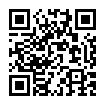Интерпретация показателей цифровизации российской системы общего образования
Научная статья
Для цитирования
Скворцова Е. Е. Интерпретация показателей цифровизации российской системы общего образования // Народонаселение. 2023. Том 26. № 2. С. 102-113. DOI: https://doi.org/10.19181/population.2023.26.2.9 EDN: XLFRNG
Аннотация
В статье анализируются показатели цифровизации российской системы общего образования Федеральной службы государственной статистики (Росстат) и Единой межведомственной информационно-статистической системы (ЕМИСС), а также данные вторичного анализа результатов социологического исследования «Подростки 360°» (в рамках стратегической программы «Подростки России» Уполномоченного при Президенте РФ по правам ребенка) и других источников. В качестве показателей рассматриваются: использование специальных программных средств, доступных для обучающихся в образовательных организациях; численность обучающихся с применением электронного обучения и дистанционных образовательных технологий; численность учащихся организаций, осуществляющих образовательную деятельность по дополнительным общеобразовательным программам для детей; доля детей, посещающих дополнительные образовательные занятия; цели использования интернета детьми. Прослеживается их динамика за последние несколько лет. Интерпретация влияния цифровизации на образование представлена на количественном и качественном уровнях. Проанализированы мнения специалистов в области социальных и педагогических наук, преподавателей и врачей, непосредственно связанных с образованием и детством, о влиянии цифровизации на здоровье, умственные способности, усвояемость знаний и приобретение трудовых навыков. Делается вывод о том, что чрезмерное внедрение цифровых технологий во все сектора отечественного общего образования, в том числе в дополнительное школьное, может мешать получению и систематизации базовых знаний и не способствовать воспитанию молодого поколения в традиционно-нравственном ключе. Цифровые образовательные новшества полезны как дополнительные обучающие средства, но с качественным и серьёзным контентом.
Ключевые слова:
цифровизация, цифровая трансформация, искусственный интеллект, общее образование, дополнительное образование, технологии, ремёсла, школьная профилизация
Литература
1. Тимченко, А. А. Разрыв поколений в российском обществе XXI века: социологический анализ / А. А. Тимченко // Общество и право. — 2018. — № 3(65). — С. 182–185. EDN: UZGFFS
2. Четверикова, О. Н. «Цифровые эксперименты» в российском образовании: явные и скрытые угрозы / О. Н. Четверикова // Сильное государство — выбор России. Угрозы, ценности, приоритеты. Монография. / под научной редакцией И. М. Братищева. — Москва : Издательско-торговая корпорация «Дашков и К», 2022. — С. 383–405. EDN: OORCLK
3. Савватеев, А. В. Манифест спасения массовой школы в России / А. В. Савватеев // Родная школа: [сайт]. — URL: https://роднаяшкола.рф/manifest/10.05.2022 (дата обращения: 05.04.2023).
4. Ушинский, К. Д. Труд в его психическом и воспитательном значении / К. Д. Ушинский // Народное образование. — 2013. — № 5 — С. 283–295. EDN: QIVCYX
5. Локосов, В. В. Социология радикальных изменений: трансформация российского общества в 1987–2020 годах: Монография / В. В. Локосов. — Москва : ФНИСЦ РАН, 2022. — С. 442. EDN: WMPHWZ
2. Четверикова, О. Н. «Цифровые эксперименты» в российском образовании: явные и скрытые угрозы / О. Н. Четверикова // Сильное государство — выбор России. Угрозы, ценности, приоритеты. Монография. / под научной редакцией И. М. Братищева. — Москва : Издательско-торговая корпорация «Дашков и К», 2022. — С. 383–405. EDN: OORCLK
3. Савватеев, А. В. Манифест спасения массовой школы в России / А. В. Савватеев // Родная школа: [сайт]. — URL: https://роднаяшкола.рф/manifest/10.05.2022 (дата обращения: 05.04.2023).
4. Ушинский, К. Д. Труд в его психическом и воспитательном значении / К. Д. Ушинский // Народное образование. — 2013. — № 5 — С. 283–295. EDN: QIVCYX
5. Локосов, В. В. Социология радикальных изменений: трансформация российского общества в 1987–2020 годах: Монография / В. В. Локосов. — Москва : ФНИСЦ РАН, 2022. — С. 442. EDN: WMPHWZ

Статья
Поступила: 20.02.2023
Опубликована: 15.06.2023
Форматы цитирования
Другие форматы цитирования:
APA
Скворцова, Е. Е. (2023). Интерпретация показателей цифровизации российской системы общего образования. Народонаселение, 26(2), 102-113. https://doi.org/10.19181/population.2023.26.2.9
Раздел
ИНТЕРНЕТ И СИСТЕМА ОБРАЗОВАНИЯ НАСЕЛЕНИЯ







